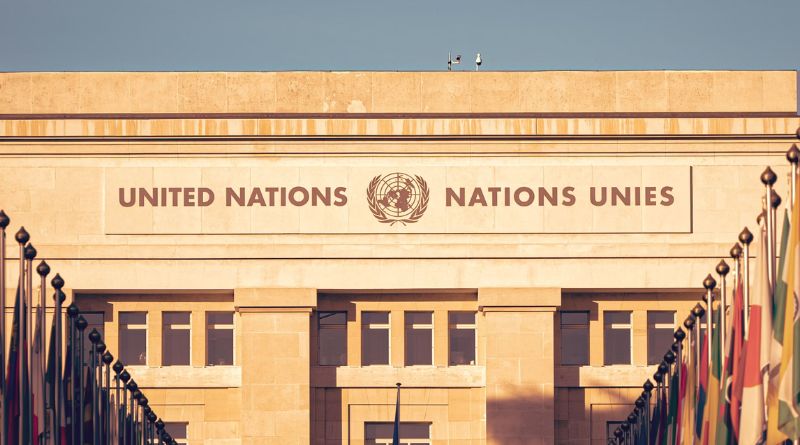
In the midst of tumultuous times, the United Nations (U.N.) stands unwavering, a beacon of hope committed to international peace, security, and cooperation. Let’s delve into the intricate tapestry of the U.N.’s history, its principal organs, achievements, setbacks, financial intricacies, and its crucial relevance in our complex world.
Chapter 1: Navigating History – Rise from the Ashes
The League’s Ascent and Fall: The aftermath of World War I birthed the League of Nations, a noble endeavor to prevent global conflicts. However, its failure, marred by major powers’ reluctance to join, set the stage for a more inclusive successor.
Birth of a Vision: Post-World War II horrors propelled global leaders to forge a new path. In 1945, the United Nations emerged from the crucible of war, with representatives from 50 nations shaping its destiny during the United Nations Conference on International Organization.
Milestones in Time: The U.N.’s journey unfolds through key dates:
- June 26, 1945 – Signing of the United Nations Charter
- October 24, 1945 – Formal establishment with 29 countries
- 1948 – Adoption of the Universal Declaration of Human Rights
- 1961 – Tragedy strikes as Secretary-General Dag Hammarskjöld is killed
- 2015 – Adoption of the 2030 Agenda for Sustainable Development
- 2020 – Celebrating 75 years amid a global pandemic
Chapter 2: The U.N. Symphony – Principal Organs and Specialized Agencies
Foundations in New York: Nestled along the East River in New York City, the U.N. houses pivotal organs:
- General Assembly: The heart of policy-making with equal representation
- Security Council: Safeguarding peace with permanent and elected members
- ECOSOC: Coordinating economic and social endeavors globally
- ICJ: The World Court settling legal disputes
Specialized Allies: Beyond the core, specialized agencies like WHO, UNICEF, and IMF play crucial roles. Their autonomy allows flexibility while advancing U.N.’s economic and social objectives.
Chapter 3: Triumphs and Trials – A Closer Look
The Essence of Purpose: The U.N.’s fundamental aim echoes through time – preventing the scourge of war. Amid ongoing conflicts, its successes shine:
- Peacekeeping: Over 70 missions deployed globally since 1948
- Human Rights: The 1948 Universal Declaration a cornerstone of global rights
- Decolonization: A catalyst for independence, shaping the post-colonial world
- Global Development: Millennium Development Goals offering a blueprint
Shadows in the Light: Yet, the U.N. grapples with failures:
- Rwanda (1994): A tragic failure to prevent genocide
- Srebrenica (1995): Inability to protect in a declared “safe area”
- Ongoing Syria Crisis: Struggling to broker peace amid human suffering
Chapter 4: The Financial Tapestry – Navigating Budgets
Resource Realities: Funding the U.N. juggernaut involves a meticulous dance:
- Regular Budget: Calculated contributions from member states based on capacity
- Peacekeeping Budget: Financing over 12 active peace missions
- Voluntary Contributions: A patchwork of donations sustaining specific programs
Balancing Act: Critics lament the U.N.’s shoestring budget, questioning its ability to fulfill global mandates. A reevaluation of funding mechanisms is imperative for sustained impact.
Chapter 5: Echoes of the Past, Resonance in the Present
A Reckoning: As the U.N. marked 75 years in 2020, the COVID-19 pandemic underscored its enduring relevance. However, critiques linger:
- Global Conflicts: Ongoing strife in Palestine, Syria, and Yemen
- Internal Frailties: Outdated power dynamics, bureaucracy, and corruption
The Unquestionable Need: Despite imperfections, the U.N. remains indispensable:
- Stabilizing Force: Crucial in global upheavals like pandemics and geopolitical conflicts
- Multilateral Catalyst: No alternative coalition matches its reach and experience
Embracing the Future: In a world teetering on the edge of uncertainty, the United Nations remains a vital force. While challenges persist, bold reforms and unwavering commitment can ensure the U.N. continues to be the bedrock of global stability, human rights, and development. As we navigate an ever-evolving landscape, nurturing the U.N.’s 75-year legacy becomes paramount for a harmonious and equitable world order.



